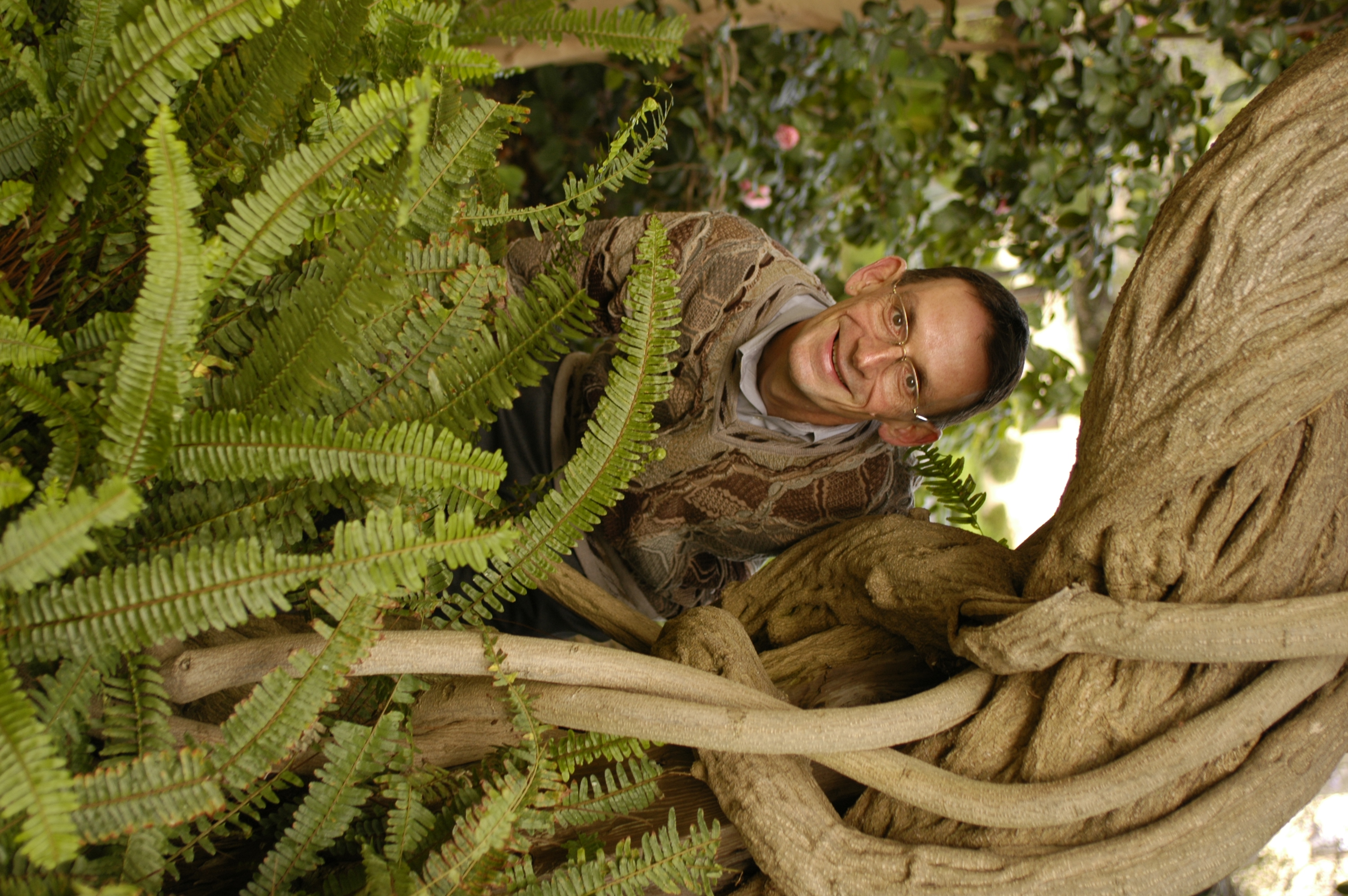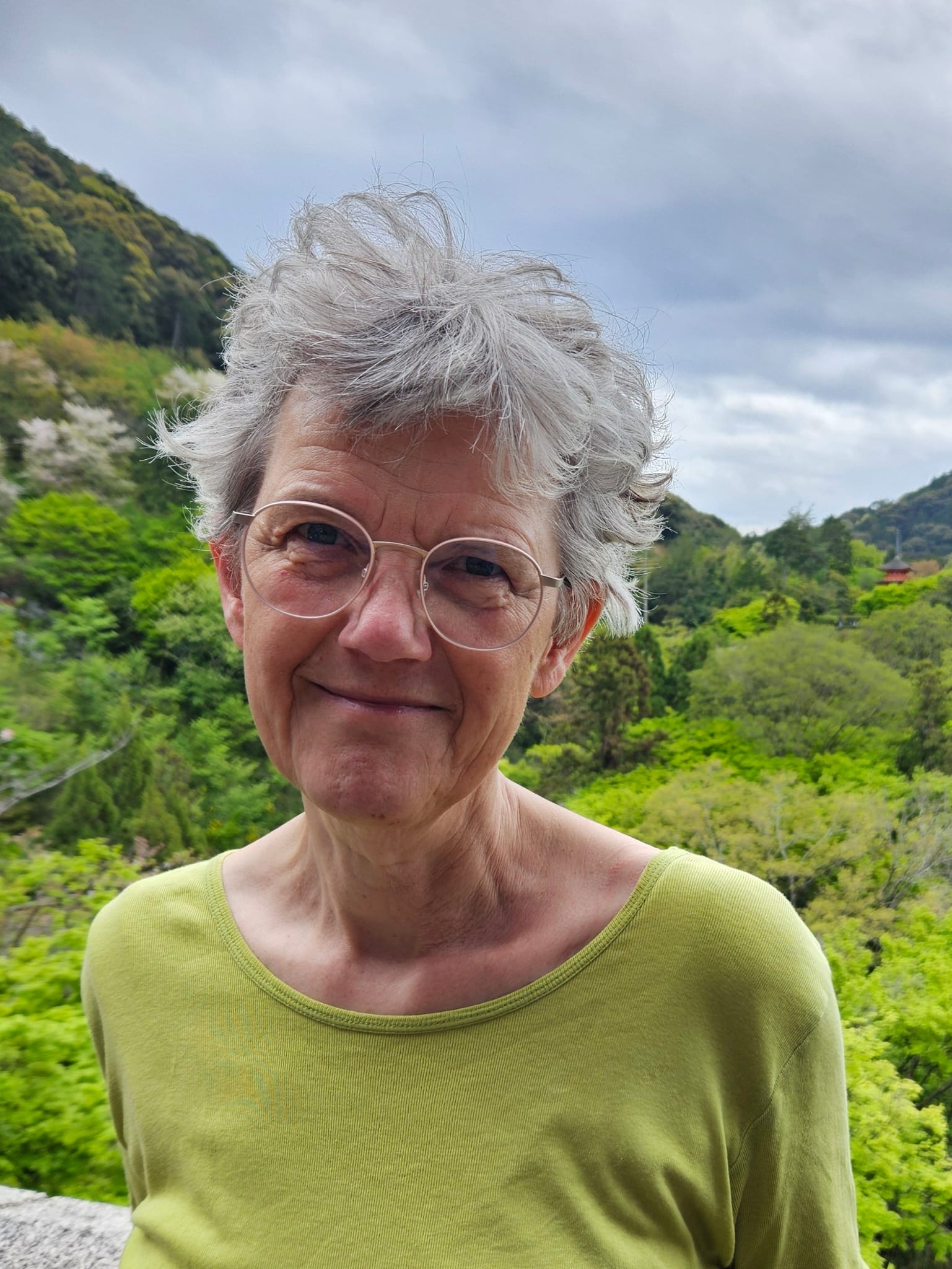Bernal Prize 2024:
Geoffrey C. Bowker and Annemarie Mol
The Society for Social Studies of Science annually awards the Bernal Prize to an individual who has made distinguished contributions to the field of STS. Past winners have included founders of the field, along with outstanding scholars who have devoted their careers to the understanding of the social dimensions of science and technology. The 2024 Prizes go to Geoffrey C. Bowker and Annemarie Mol.
The 2024 Bernal Prize Committee: Anne Pollock, Chair, Monamie Bhadra Haines, Warwick Anderson, Wen-Hua Kuo, and Nassim Parvin
Geoffrey C. Bowker
 Professor Emeritus in the Department of Informatics at the University of California - Irvine, Geoffrey C. Bowker has transformed our understanding of information technology and cyberinfrastructures. After receiving his PhD from the University of Melbourne, Bowker studied with Bruno Latour at the École des Mines, Paris, before holding posts at the University of Keele, the University of Manchester, the University of Illinois Urbana-Champaign, UC - San Diego, Santa Clara University, and the University of Pittsburgh. His early study of information management and industrial geophysics at Schlumberger, Science on the Run (1994), pioneered STS research in information infrastructures. With his late partner and intellectual collaborator, Susan Leigh Star, Bowker reshaped and extended knowledge of sociotechnical infrastructures such as databases, modes of visualization and classification, and scientific and engineering standards. Their co-authored Sorting Things Out: Classification and Its Consequences (1999) continues to exert a major impact in science and technology studies and beyond, in fields such as information technology and design studies. The transformative work they did together serves as a model for collaborative enterprise in our field. With Helen Nissenbaum and Leigh Star, he developed a suite of international graduate workshops on Values in the Design of Information Systems and Technology. Bowker continues to open new vistas in STS through books such as Memory Practices in the Sciences (2005)—awarded the Ludwik Fleck Prize—and Understanding Infrastructure: Dynamics, Tensons, and Design (2007). In an era when digital technologies such as artificial intelligence are influencing our lives and sense of ourselves as never before, his innovative and illuminating research becomes ever more compelling and necessary. His recent paper on the ‘ends of computing’ in the appropriately titled Ends of Knowledge volume (2023), explores these issues.
Professor Emeritus in the Department of Informatics at the University of California - Irvine, Geoffrey C. Bowker has transformed our understanding of information technology and cyberinfrastructures. After receiving his PhD from the University of Melbourne, Bowker studied with Bruno Latour at the École des Mines, Paris, before holding posts at the University of Keele, the University of Manchester, the University of Illinois Urbana-Champaign, UC - San Diego, Santa Clara University, and the University of Pittsburgh. His early study of information management and industrial geophysics at Schlumberger, Science on the Run (1994), pioneered STS research in information infrastructures. With his late partner and intellectual collaborator, Susan Leigh Star, Bowker reshaped and extended knowledge of sociotechnical infrastructures such as databases, modes of visualization and classification, and scientific and engineering standards. Their co-authored Sorting Things Out: Classification and Its Consequences (1999) continues to exert a major impact in science and technology studies and beyond, in fields such as information technology and design studies. The transformative work they did together serves as a model for collaborative enterprise in our field. With Helen Nissenbaum and Leigh Star, he developed a suite of international graduate workshops on Values in the Design of Information Systems and Technology. Bowker continues to open new vistas in STS through books such as Memory Practices in the Sciences (2005)—awarded the Ludwik Fleck Prize—and Understanding Infrastructure: Dynamics, Tensons, and Design (2007). In an era when digital technologies such as artificial intelligence are influencing our lives and sense of ourselves as never before, his innovative and illuminating research becomes ever more compelling and necessary. His recent paper on the ‘ends of computing’ in the appropriately titled Ends of Knowledge volume (2023), explores these issues.
Acceptance Statement:
Bowker: To be awarded the Bernal prize means the world to me. J. D. Bernal – along with Lewis Mumford - were basic inspirations for me getting into STS: each instantiated broad sweep paired with incisive political analysis. I always try to reproduce their good qualities and to subvert their bad. I never know if it works.
I was delighted that the nominating committee brought out the importance of collaboration for my work. And especially that they evoked Leigh Star – she was unfailingly brilliant (just couldn’t stop herself) even when in physical and psychic pain. Writing Sorting Things Out with her was such a joy. Before her early death her next project, which we had played with for years, was to be a work on the poetics of infrastructure. This is her award as much as mine. And that of numerous other collaborators whom I won’t single out because I don’t want to miss anyone or produce a laundry list. I treasure the collaborations; each has been an opportunity to play and learn. In recent years, working with Judith Gregory has been great, especially since we have felt no pressure publish and so have not.
It is increasingly apparent from the organization of our cells to the operation of the universe that information infrastructure subtends all modes of being, which leads to my basic argument that we cannot understand the one without the other; for me the best science studies is always already about ontology and political economy; and the best philosophy of science is always already about technology (broadly conceived).
Annemarie Mol
 Annemarie Mol, Professor of Anthropology of the Body at the University of Amsterdam, is an exceptionally original theorist and ethnographer, highly impactful within STS and beyond. After undergraduate training in medicine and philosophy at the University of Utrecht, she received her PhD in Philosophy from the University of Groningen in 1989, and has been bringing her distinctive philosophical insights to bear on STS ever since. Her work from that period both drew on and critically advanced actor network theory with a feminist sensibility attentive to both agency and care, which set her apart as a leading thinker amid the ascendant interdisciplinary interest in ontology. Throughout her highly productive career, she has attended closely to the practices of science, technology, and medicine in distinctive concrete sites, ranging from studies of atherosclerosis in her Fleck Prize-winning book The Body Multiple: Ontology in Medical Practice (Duke 2002) to the Zimbabwe Bush Pump (with Marianne de Laet, in Social Studies of Science in 2000). Mol’s creative approach—philosophically rigorous while also grounded in everyday practices—remains vital in recent work on language and eating (On other terms: Interfering in social science English (edited with John Law, The Sociological Review Monograph, 2020); Eating in Theory (Duke 2021)). Throughout this extraordinary body of work, insights that Mol has honed in very specific settings have traveled widely, finding eager readers in STS and well beyond this already-interdisciplinary domain. She has thus raised the profile of our field at the same time that she has invaluably enriched its empirical and conceptual repertoire.
Annemarie Mol, Professor of Anthropology of the Body at the University of Amsterdam, is an exceptionally original theorist and ethnographer, highly impactful within STS and beyond. After undergraduate training in medicine and philosophy at the University of Utrecht, she received her PhD in Philosophy from the University of Groningen in 1989, and has been bringing her distinctive philosophical insights to bear on STS ever since. Her work from that period both drew on and critically advanced actor network theory with a feminist sensibility attentive to both agency and care, which set her apart as a leading thinker amid the ascendant interdisciplinary interest in ontology. Throughout her highly productive career, she has attended closely to the practices of science, technology, and medicine in distinctive concrete sites, ranging from studies of atherosclerosis in her Fleck Prize-winning book The Body Multiple: Ontology in Medical Practice (Duke 2002) to the Zimbabwe Bush Pump (with Marianne de Laet, in Social Studies of Science in 2000). Mol’s creative approach—philosophically rigorous while also grounded in everyday practices—remains vital in recent work on language and eating (On other terms: Interfering in social science English (edited with John Law, The Sociological Review Monograph, 2020); Eating in Theory (Duke 2021)). Throughout this extraordinary body of work, insights that Mol has honed in very specific settings have traveled widely, finding eager readers in STS and well beyond this already-interdisciplinary domain. She has thus raised the profile of our field at the same time that she has invaluably enriched its empirical and conceptual repertoire.
Acceptance Statement:
Mol: What a pleasure to win a prize! And the Bernal prize, no less. I warmly thank the Bernal prize committee for this recognition of the work I have been doing over the last, say, forty years. Thanks as well to the organisers of 4S and EASST and their many events and to everyone else who keeps our intellectual community vital and vibrant. And then, of course, I have a lot of colleagues and friends to thank, who have inspired, supported, and helped shape my work. Many more than fit a short note like this; they know who they are. Dankjewel!



